Vanderbilt Owen or Tennessee Haslam: Which School is Right for You?
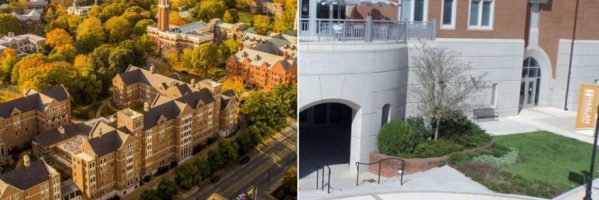
The state of Tennessee likely brings to mind Graceland, Dollywood, the Appalachians, and the Great Smoky Mountains. But for those with an eye to top business schools, the Volunteer State is also home to several competitive MBA programs.
Continue reading…News Roundup – USC Fintech, New Georgetown McDonough Fellowships, and More

Let’s take a look at some of the biggest stories from this week, including a USC Fintech profile, plus more.
Diving Into Disruption – USC Marshall News
What is the future of fintech? USC Marshall and the Institute for Outlier Research in Business (iORB) held a conference last month to address that very question.

Marshall faculty, Ph.D. candidates, and industry executives gathered to explore the challenges, trends, and research needs that are critical to the rapidly expanding universe of cryptocurrency. Corporate organizers included Lexant Advisors and Berkeley Research Group.
Issues such as strategy and risk management, AI and machine learning, and the necessary convergence of traditional banks and fintech were all addressed at the conference.
Marshall Professor Larry Harris says, “The research question is: Given the existence of these problems, how do we see the translation of the solution from a manual system to an electronic system?… Any one of the these problems could be the source of five different dissertations.”
You can learn more about USC fintech here.
Move Over, Managers: Are Robots on the Rise? – Fox School of Business News
Will the robots be your bosses?
Two Temple University Fox School of Business doctoral students are exploring this question through research on the effects of automation upon management roles. With their focus on services such as TaskRabbit, Xue Guo, and Zhi Cheng are studying how the new power of the service laborer is impacting managers and supervisors.
The gig economy, the team has revealed, enables workers to become more selective in the jobs that they pursue. Being one’s own boss is now more than ever a real possibility, and apps like TaskRabbit eliminate the need for a supervisor to connect for instance, a housecleaner to a client.
Guo says, “After the entry of TaskRabbit … we observed a 5.5 percent decrease in first-line managerial jobs.”
One downside of the shift in autonomy, however, is that it is limited to those laborers who are tech savvy. The barrier, however, is easily conquered by the availability of the technology and the willingness to learn, Guo notes.
Four Ways to Become a More Self-Aware Leader – Kellogg Insights
Karen Cates, Adjunct Professor of Executive Education at the Northwestern University Kellogg School of Management, has recently proposed some important theories about how leaders can become more effective through some non-traditional methods.
Cates and her colleague, Clinical Professor of Leadership Brenda Ellington Booth are Executive Coaches. They have developed four strategies that bosses can practice to make them both more effective and more connected to their teams.
- Look beyond assessment tools (like Meyers Briggs tests and the like).
- Reflect upon what you can do better as a leader
- Don’t just change for the sake of changing
- Make self-reflection a daily habit
“Leadership isn’t just about taking assessments, attending seminars, or reading articles and filing them away in a folder on your desktop,” Cates says. “It has to be a living thing.”
New MBA Program Announces Fellowships in Entrepreneurship and Fintech – McDonough School of Business News
Georgetown McDonough has announced two new fellowships that will continue to push the school’s MBA grads to the top of their fields.
The school will welcome its first entrepreneurship fellowships this fall, and the inaugural recipient of the fintech fellowship will arrive in 2020.
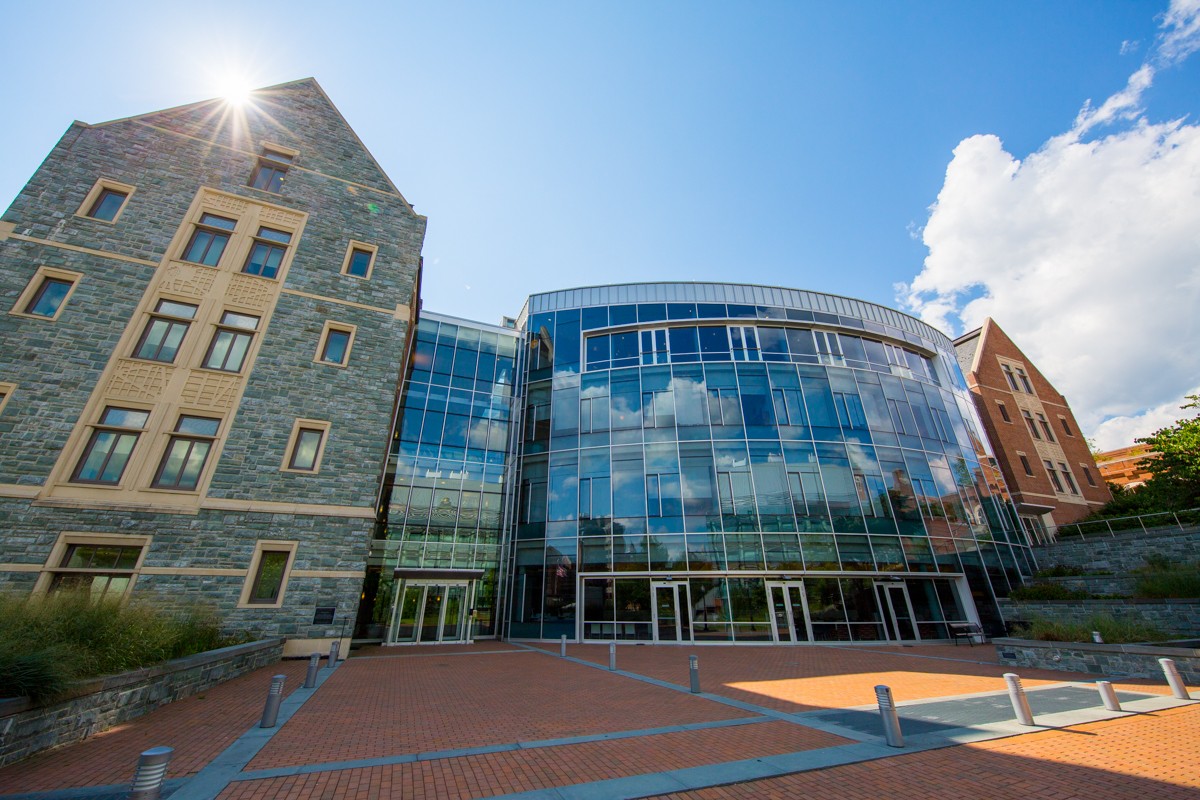
“As Georgetown McDonough continues to attract more competitive candidates, we have been focused on launching new scholarships in specific interest areas, including entrepreneurship and fintech, and for those aligned with our commitment to social impact like AmeriCorps alumni,” says Shelly Heinrich, Associate Dean for MBA Admissions.
The fellows will participate in Georgetown Entrepreneurship, which shares knowledge on developments in business with the greater campus community; and the Center for Financial Markets and Policy which sponsors research and hosts events that address key financial market issues.
Virginia Tech Focuses on Working Professionals
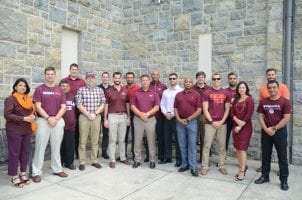
Sponsored Content
Virginia Tech has been making local headlines lately with the announcement of its Innovation Campus in the newly-designated neighborhood of National Landing.
While the new campus will help cement the university’s regional footprint, Virginia Tech has been quietly providing graduate education opportunities in the DC Metro Area since 1969. Virginia Tech’s Pamplin College of Business has offered its MBA programs in this region for decades and more recently made the decision to narrow its focus to working professionals in urban centers across the commonwealth.
“What we did at Virginia Tech a few years ago was to say that we really want to focus on the working professional—someone who wants to enhance their career or make a change in the direction of their career, but not at the expense of continuing to be a business professional,” says Pamplin Dean Robert Sumichrast. That allows those students to come into the classroom, he adds, “and use what they’ve learned as part of the experience of the MBA program.”
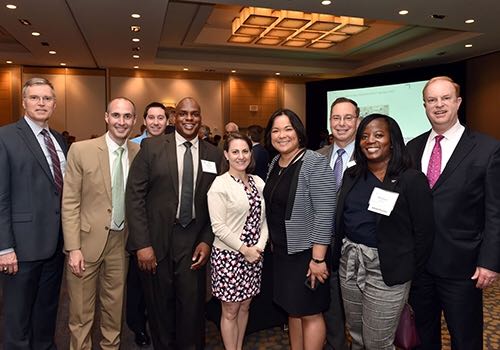
Arlington is home to the Executive MBA program, an 18-month, cohort-based option for mid-career professionals. The curriculum is centered around experiential learning modules that provide students with hands-on experience in topics like business analytics and leadership and governance.
The nationally-ranked Evening MBA program is based in Falls Church and designed to provide maximum flexibility. Students can change their course load each semester to balance work and other commitments. They also have the option to focus their degree in one of 10 specialization areas, including traditional business topics like finance and management, and some more niche areas like healthcare information technology.
The Professional MBA program is a 24-month hybrid option with once-per-month in-person classes that rotate between Richmond, Roanoke, and Newport News.Visit mba.vt.edu to learn more about Virginia Tech’s MBA programs, or register to attend an upcoming information session.
Friday News Roundup – Rutgers Accounting Partnership Announced, and More

Let’s take a look at some of the biggest stories from this week, including Rutgers accounting expanding.
Rutgers To Offer Accounting Students International Exposure – Rutgers Business School News
Rutgers Business School has partnered with the Chartered Institute of Public Finance and Accountancy (CIPFA) to give certified students the ability to offer public finance services in countries outside the U.S.
The memo of understanding between Rutgers and CIPFA states that current students and graduates of the Masters in Governmental Accounting Program can qualify to practice internationally after completing the online certification course, which will begin in September 2019.
Among the advantages of the CFA designation are access to networking opportunities, seminars, and ongoing professional development throughout one’s career—in addition to the ability to practice internationally. Rob Whiteman, Chief Executive Officer of CIPFA, says of the agreement. “CIPFA is delighted to be entering into a partnership with Rutgers University that will allow us to share our expertise and explore common goals to the benefit, not only of the students, but the public sector globally, which can only gain through greater cooperation among government accountants … [the] memorandum of understanding will enable the development and retention of top talent for government accounting.”
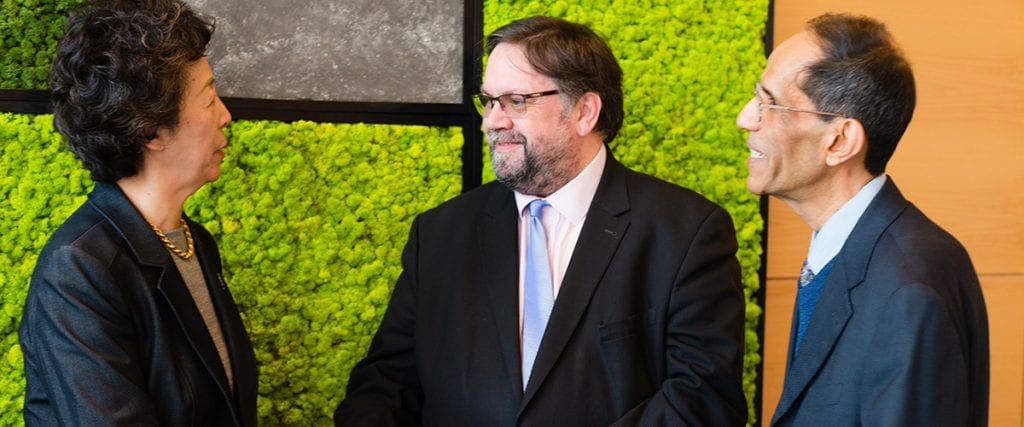
CIPFA CEO Rob Whiteman (center), alongside Dean Lei Lei (left) and Professor Irfan Bora at the Feb. 27 signing. / Photo via business.rutgers.edu
Click here for more about the CIPFA and Masters in Governmental Accounting program.
LeBow Hosts Webinar for Customizable MBA and More – Lebow News
On March 12, 2019 from 12-1 p.m., Drexel University’s LeBow College of Business will host a webinar for those interested in its customizable MBA. Information will also be available on all other postgraduate business education.
The session is open to all current and future students, and to full time, part time and international students.
Attendees will be able to connect one-on-one with admissions staff during the webinar, which will cover the following: full-time MBA; part-time MBA on the Philadelphia campus and in Malvern; the Online MBA; and the Masters programs in Accounting, Business Analytics, Economics, Supply Chain Management and Logistics, Marketing, and Quantitative Finance.
To register for the webinar, click here.
Goizueta Panelists on the State of Healthcare in 2040 – Goizueta Business School Insights
Emory University’s Goizueta Business School recently hosted a panel of senior managers from multiple healthcare sectors who made predictions on the future of the industry for both providers and consumers. Moderated by Associate Professor in the Practice of Organization and Management Renee Dye, the panel’s discussion focused specifically on the state of healthcare in the year 2040.
Panelists Jeff Fusile, President of Blue Cross and Blue Shield of Georgia; Judith Monroe, President and CEO of the CDC Foundation; Dane C. Peterson, Chief Operating Officer of Emory Healthcare; and Mike Van Den Eynde, Managing Director of Deloitte Strategy and Operations at Deloitte all contributed their insights at the February event.
Jeff Fusile commented on the rising cost of insurance:
“More than half of a family’s gross income goes to cover the average family of four’s healthcare cost—not a sick family, not a healthy family, the average family … “If we don’t make a change, 10 years from now, maybe 20 years from now, we’ll be here saying, ‘Now it costs 100 percent of your gross income.’”
Monroe’s remarks pointed out the complex factors involved in the growth of healthcare:
“The future really will depend on a complex web of things, all the way from science, technology and data to economics, political factors, social factors and certainly environmental factors … By 2040, we’re going to have new devices that we can’t imagine today. When you wake up, you’re going to have real-time blood pressure, biometrics and blood chemistries.”
Each panelist pointed out the vast changes that healthcare tech will undergo, along with the shift that will be necessary in order for the healthcare business to become consumer focus as opposed to profit driven.
Check out more from the recent panel here.
Loyola’s Sellinger School Announces New Classes in Downtown Baltimore – Loyola News
Loyola University Maryland’s Sellinger School of Business has announced that it will offer classes for its new Professional’s MBA hybrid cohort in Downtown Baltimore.
The Center Club at the Transamerica Building will be home to the cohort, which meets in conference rooms on Mondays from 6:30-9 p.m. The Professional’s MBA (PMBA) is offered as a part-time degree for professionals from all backgrounds, and it is designed so that students may pursue the degree at their own pace.

The Transamerica Building, the tallest in Baltimore, will host classes for the Sellinger School of Business Professional’s MBA hybrid cohort.
“We are delighted to open a downtown location that will bring our excellent business courses we offer into the heart of Baltimore …So many professionals live and work [here], and Loyola wants to meet them where they are,” says Sellinger Dean Kathleen A. Getz, Ph.D.
PMBA students, who will take 33-42 credits, will complete the remainder of the coursework online, but the Center Club will be the cohort’s hub for meeting and learning. For registration info and more on the PMBA click here.
Mendoza College of Business’ New “Interterm” Gives Real World Experience – Mendoza News
University of Notre Dame’s Mendoza College of Business now offers a unique course in which students can flex real world skills while earning credits and providing community service.
The “Interterm” is offered in the first week of March, and it is meant to promote engagement with organizational partners to complete a selection of projects that will benefit the company, the student, and the surrounding community. Thirty-four partners from across the country signed on for Interterm. Among them was HUNGRY, a catering company in Washington, D.C.; Waves for Water, which helped distribute filtration kits to those affected by Hurricane Maria, and the Catholic Volunteer Network, which will partner students with young people in Takoma Park, MD.
After an extensive survey process with Mendoza’s MBAs, the program was revamped from classroom case-studies to the experiential learning model that it used this year. Alice Obermiller, Associate Director for Experiential Learning in Graduate Business Programs says of the new curriculum, “[Students] wanted to engage in activities that tangibly built up their resume with demonstrated experiences working on real and timely issues … like most of us, [students] have many competing priorities, so they want to engage in things purposefully and that serve them most at the time.”
In addition to the Interterm projects, students will be able to take part in international immersion programs in China, South America, and South Africa. For more on Interterm and the immersion programs, click here.
Real Humans of the SMU Cox School of Business
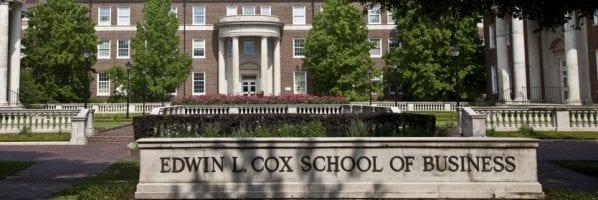
After 100 years, one can expect a few changes.
The Southern Methodist University Cox School of Business, nearing it’s centennial celebration, is a perfect test-case for how much change can mean. Founded in 1920 as the Department of Commerce, the Dallas metro business school has gently evolved from a modern Methodist research beacon into one of the most transformative schools in Texas.
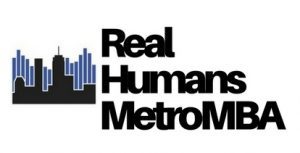
With over 11,000 students at SMU, including 5,170 graduate students, the Cox School of Business hosts nearly 600 MBAs in its various programs. For any Cox student, one of the definitive advantages of the business school is the advantageous proximity to Dallas’ thriving business community. Ten companies in the metro land within the Fortune 500 ranking. Among the group, four companies—Exxon Mobil, AT&T, Energy Transfer Equity, and American Airlines Group—land in the top 100, with two in the top ten. With high national regard, including a top 50 ranking for the school in U.S. News & World Report, plus the bevy of major companies as neighbors, these factors can seem overwhelmingly beneficial to a successful career.
When talking with members of the SMU Cox School of Business Professional MBA class, however, the allure of the program went beyond the obvious career benefits that Dallas can offer. For any well-regarded business school, the makeup of the class can seem familiar. The average GMAT for the PMBA Class of 2019 is 613. The GPA is 3.3. Most of the group has about five years of prior professional experience before enrollment. But just going off the bare statistics hardly tells the entire story.
To get a greater understanding of the SMU Cox School of Business Professional MBA class, we spoke with several current students, including a self-described “Army Brat,” a former law school student, and a consultant originally from Kathmandu, along with a handful of other future grads. Read on to see their stories and what the future may hold for life after an MBA.
The Fastest MBA You Can Earn in Los Angeles

Los Angeles may not be typically associated with the break-neck pace of life like New York or Washington DC, that doesn’t mean your business school career has to be slow there. A fast MBA is becoming an increasingly large priority for new MBA students throughout the U.S., and, luckily, Los Angeles has plenty of fast options.
With businesses constantly growing in the city (LA added 6,400 new jobs just last April), the faster MBA students can get their degree in hand means the faster they can get to work. Not to mention that accelerated or shortened MBA programs usually mean spending less money on tuition and living expenses while in school—minimizing the amount of time students will have to forego an income.
We looked at some of the fastest MBAs you can earn in Los Angeles, with some unique programs taking as little as 12 months to complete. These MBAs will allow you to get quickly down to business without sacrificing the quality or integrity of the program.
Finding a Fast MBA in Los Angeles
Marshall School of Business – USC
The USC Marshall MBA is one of the top ranked programs in the country, and with the One-Year International MBA for Mid-Career Professionals (IBEAR MBA), you can have that degree in your hand in just 12 months. The program, which is designed for mid-career professionals looking to expand their leadership opportunities in global business, provides career development opportunities, personalized career plans, and plenty of chances to explore the world.
The program is truly global and the average class size of 55 can represent anywhere from 12-15 countries. Participants, with an average of 11 years of professional experience, come from a wide range of academic backgrounds, including those with undergraduate majors in computer science, science & engineering, and even the humanities. These mid-level professionals can seriously minimize the amount of time they must take away from work, and in the process gaining an IBEAR alumni network of 1800 across 60 countries.
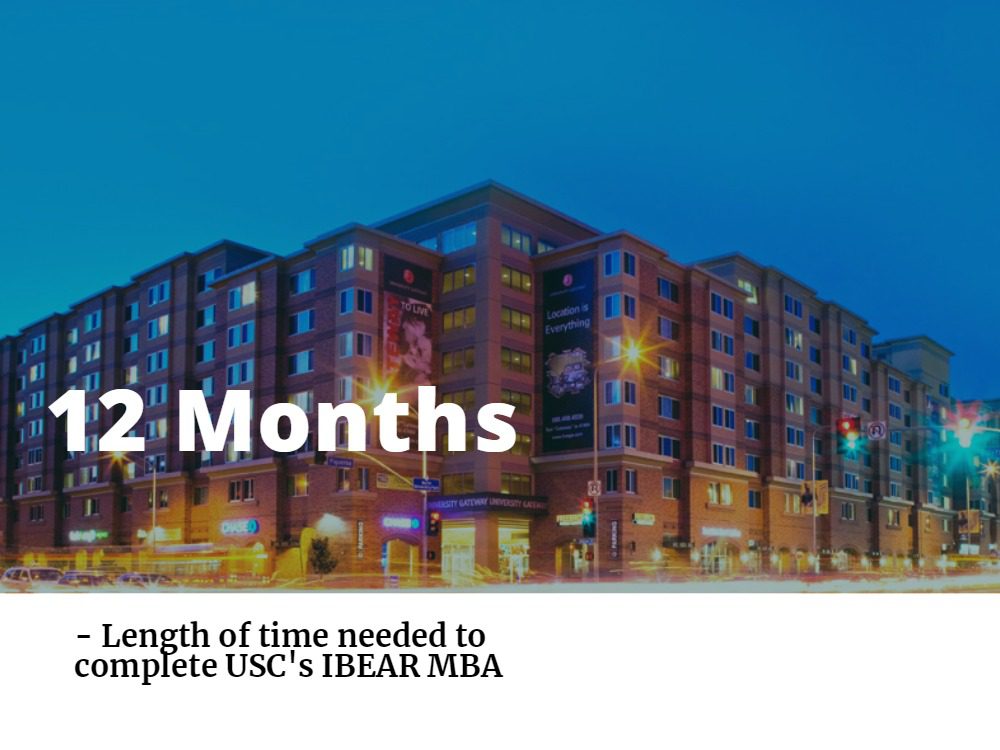
Mount Saint Mary’s University, Los Angeles
The Mount Saint Mary’s MBA program is designed to create effective global leaders who are trained in value-based decision making to bring real and impactful change to the businesses they lead. And the best part? The program takes just 18 months to complete. One of these semesters consists of “Foundations” courses for business leaders just starting out, and may be waived for candidates that have taken similar courses during their undergraduate studies, which may even further reduce the program’s length.
The Mount Saint Mary’s fast MBA is a unique program that centers itself around theme-based models, combining business disciplines like marketing, law, or finance, to give students a broader view of the interdisciplinary nature of business. The 18-month program also includes a final project that will require teams of students to partner with a “real world” organization to solve their business problems.
Argyros School of Business – Chapman University
The Professional MBA program at Chapman University’s Argyros School of Business allows students to customize their degree and move through the program at their own pace. For dedicated students, the program can be completed in as little as 21 months. The class schedule is flexible, which allows students the chance to move at their own pace throughout the program, choosing between both evening and daytime courses. Students may also choose a specialization in which to focus their degree, such as marketing analytics, entertainment, and global business, among others.
Even though the Chapman Professional MBA is flexible and at times fast-paced, the university does not compromise in quality and students will have the same benefits available to them as those in more traditional programs. Students in the Chapman MBA program will be taught by professional and renowned faculty, have access to the university’s career services department, and even have opportunities to travel around the world.
CHECK THIS OUT: Here are the Los Angeles Internship Opportunities You Need to Know
California State University, Long Beach College of Business Administration
The Accelerated MBA program at California State University, Long Beach is designed for young professionals with little experience in the business world. Focusing on entrepreneurship and innovation, the program will train these up-and-coming business leaders in how to bring new products to the market, identify business opportunities, and manage small business ventures.
The Accelerated program at CSULB can be completed in as little as 13 months, allowing students to jump back into work with an MBA on their resume just over a year after they start. The program is also heavily centered around internship experience, which will allow students to gain crucial hands-on experience while earning their degree, and get closer to the school’s objective of ensuring every student has a job offer by graduation.
Anderson School of Management – UCLA
The UCLA-NUS Executive MBA, offered jointly through UCLA’s Anderson School of Management and the National University of Singapore Business School, can be completed in just fifteen months and results in two fast MBA degrees from two of the world’s top business schools.
If you are looking for a truly global degree—and the international experience to back it up—this could be the perfect degree for you. Every three months, your cohort of students from around the world will gather for two weeks at locations from Los Angeles to Shanghai and anywhere in between.
